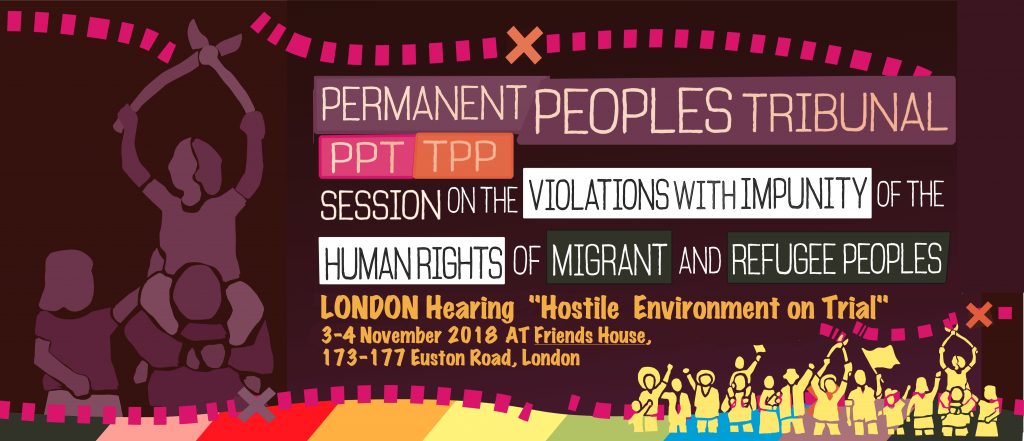Barcelona, July 12, 2018. – The Third Hearing of the Session of the Permanent Peoples Tribunal (PPT) on the violation with impunity of the human rights of migrants and refugees Peoples, took place on June 29, 30 and 1 of July in Barcelona. After examining cases of human rights violations in the axis of Gender and Sexual Diversity, Minors and Youth and the Southern Border, presented by organizations of migrants and refugees, organizations active in solidarity and research centres, the conclusions of the six judges of the Court are blunt: crimes against humanity are being committed on European borders. The responsible are both the European Union and the Member States, with the aggravating circumstance that there is a strategy of non-recognition of the facts and guarantees of impunity for the individuals and institutions responsible.
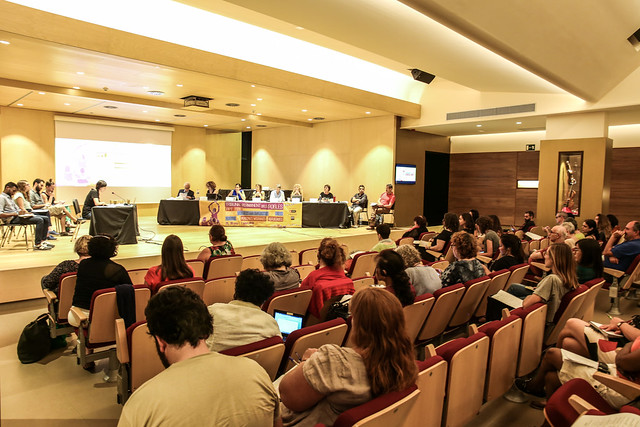
The Permanent Peoples Tribunal Hearing on Sites Without Rights (PPT) was convened and prepared by dozens of organizations of migrants and refugees and other civil society organizations and was attended by a jury composed only of women, all experts of national and international recognition: Teresa Almeida, Bridget Anderson, Marina Forti, Patricia Orejudo, Laia Serra and Stasa Zajovic.
On June 29, the Hearing was inaugurated with the presence of the City Council of Barcelona (Jaume Asens, Deputy Mayor and M. Dolores López, Commissioner of Immigration, Interculturality and Diversity), as well as representatives of the convening organizations at the international level (Jille Belisario of the Transnational Migrant Platform-Europe and Federico Pacheco of the European Coordination of La Vía Campesina). Lamine Sarr also participated on behalf of the Popular Union of Street Vendors and the Migrant Tancada of Barcelona, Gianni Tognoni, Secretary General of the Permanent Peoples Tribunal and Brid Brennan, of the Transnational Institute.
Jaume Asens said that “the 100 people killed today in the Mediterranean tell us of a common grave, they point out political responsibilities in a context of a Human Rights crisis.” Lamine Sarr recalled that migrants have much more difficulty crossing the borders than commercial goods. Federico Pacheco observed that “the discourse that justifies racism and colonialism is carried out by all the countries of the European Union, justifying measures that seek more effective expulsion mechanisms, while Europe violates the international law letting people die at sea“. Jille Belisario stressed that the Session “seeks to advance towards the recognition of humanity and dignity of migrants and refugees, but also to make visible their participation as subjects of full rights in the development of alternatives towards a more just society“. Brid Brennan remarked that “these PPT Hearings have developed a great meeting space between migrants and refugees who are themselves transnational political agents and who bring us the challenge of building new solidarities from within Fortress Europe“.
The Hearing was introduced by Juan Hernández Zubizarreta and Beatriz Plaza, who linked the essential elements of the PPT General Indictment established in 2017, with the axes of the Hearing of Barcelona (Gender and Sexual Diversity, Minors and Youth and the Southern Border). In particular, they denounced the Spanish Immigration Law and the Citizen Security Law that criminalize migrants. They also highlighted the European necropolitics, at the core of the violation with impunity of rights, and that consists of letting people die. The Secretary General of the Permanent Peoples Tribunal recalled the process of the PPT Session, noting that in the previous hearings (Palermo, December 2017 and Paris, January 2018), the documentation and legal qualification of the European policies had been made. He affirmed that the deaths caused by European necropolitics are the result of a war that the European Union and member countries have declared on migrants and refugees, and that the agreements of European governments are creating a parallel Law that violates international treaties and consolidates authentic systemic crimes.
In the Axis on Gender and Sexual Diversity that was introduced by Carmen Miguel Juan, the cases were prepared and presented by: Ca la Dona, Entrepobles, Mujeres migrantes diversas, ACATHI, Stop Maremortum, Yo sí sanidad universal/PASUCAT, No muri No recinti, Women’s Link, Casa Delle Donne, Non Una di Meno Genova, APDHA, KASAPI & MELISSA-Grecia, Waling-Waling Campaign for Rights of Migrant Domestic Workers-UK, Women in Exile, Centro Filipino de Barcelona, Mujeres pa’lante, Alianza contra la Pobreza Energética, Unitat Contra el Feixsme i el Racisme (UCFR). From the framework established in the introduction in which it was expressed to what extent migration and refuge legislation are “gender blind”, a series of consequences were deployed in the form of specific violations against women. The recognition of the right to international protection focused on cases in which violations occur in the public space and by a state agent, relegates to the background many of the causes that women flee from, considered as “domestic “or” cultural “. On the other hand, the link between temporary residence and the employment contract does not take into account the nature of the care work which is frequently the only work that migrant women can access. In terms of traffic violence, cases were presented about the reality that prevails in Italy, Greece, Germany, Morocco and the Spanish State. There is often a continuum of violence suffered by migrant and refugee women in their countries of origin, in the transit to European borders and once established in European countries, through their work, often invisible in homes or in agricultural fields combined with the problems they face in accessing health, housing and energy. The case of LGBTI persons was also presented in the Axis. These are targets in the countries of origin of homicides, sexual and gender-based violence, torture and arbitrary detentions. In transit, they are victims of many kinds of rights violations and once within European borders, an adapted framework that can ensure their protection is not available.

The Axis of Minors and Youth was introduced by Raquel Prado, and the cases were presented by the Espacio del Inmigrante and the Centro Filipino of Barcelona. The situation of denial of the right to protection experienced by people under 18 years of age was highlighted, despite the fact that they are ensured protection by more than one hundred norms of international law, almost all of which have been signed and ratified by the EU and its member states. In particular, the Convention on the Rights of the Child and the Girl stands out. Migrant minors travel unaccompanied, or are separated in transit to European borders. Many disappear, victims of human trafficking, prostitution, exploitation, slavery, without States assuming their responsibilities to search for these new disappeared. It was reported that the States do not ensure access to a dignified and full life for young people who reach the age of majority, on equal terms with the rest of young people.
The South Border Axis was presented by Bru Aguiló of Fotomovimiento, and the cases were prepared by: NOVACT, Sindicato Popular de Vendedores Ambulantes, Alianza por la Solidaridad, Observatori DESC, Fotomovimiento, Collectif Des Femmes Migrantes Au Maroc COFMIMA, Women’s Link, SOS Racisme, Centre Delàs, Tanquem els CIEs, Alianza por la Solidaridad, APDHA, Women’s Link, IRIDIA, ELIN. The presentation of the Axis was framed as a Site without Rights, in which prevail: plunder, colonization, neocolonization, imperialism and neo-imperialism, as well as a deep institutional racism. The narratives moved from the spaces without rights that appear before crossing the borders and, in passing through them, further spaces without rights are reached – that are built around migrants in our cities through institutional racism. Compelling documentation was presented on the numbers of the people who continue to arrive – showing the failure of the push-back policy. From January 1 to June 10, 2017, comparing with the same period in 2018, the arrivals were multiplied by two, reaching the figure of 9315 in 2018. The deaths and disappearances multiplied by four. In the whole of the Mediterranean Sea, more than 14,000 people died or disappeared since 2014. Through the Mediterranean routes in general, it is estimated that more than 42,000 people arrived on European territory, and that only in 2017, 10,000 were returned to Libya.
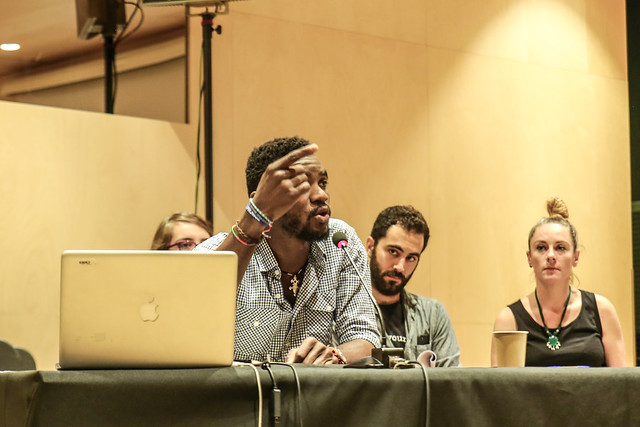
In the cases and testimonies presented, the violation of rights in Morocco, in the maritime borders and the fence was highlighted. For example, through the case of Tarajal (that led to the death of 15 people on February 6, 2014), the case of women from Isla del Mar or other direct testimonies, a series of inhumane practices-including extra judicial killings by agents of the Spanish State were exposed. These complaints were extended to the Centres for Internment for Foreigners (CIEs), along with raids of ethnic profiling or bureaucratic obstacles to achieving regularization, contribute to keeping migrants in a position of vulnerability that facilitates their labour exploitation and silence. In addition, it was also exposed that one of the pillars of architecture that ensures impunity in the violation of the rights of migrant and refugee peoples is located in outsourcing to private actors, many of them being transnational corporations. In this regard, the business carried out by corporations active in the military and security sectors was highlighted, and the case of INDRA was specifically illustrated. In this case, the co-responsibility of the Spanish government, which owns 18.7% of the company’s shares, was evidenced. INDRA was denounced for having built the third fence on the border of Melilla, and also for the production of military equipment used by Saudi Arabia in Yemen. It was also indicated that INDRA and other counterpart military corporations, have influenced the development of the current eminently militarised policy response to the ‘migration crisis’ by the European Union and the Spanish Government to the “migration crisis” is eminently militarized.
Organizations of migrants played a central role in the Hearing. Not only in the recognition of the violations and oppressions suffered but also in terms of the resistance generated in the face of such violations. This became evident in the form of diverse narratives and self-organized actions, ranging from the demands for their rights, such as organizations of domestic workers active in the care sector (Waling-Waling, Mujeres migrantes diversas), to denunciation and the mutual support in situations that violate law (Women in Exile). In addition, it is important to highlight the importance of the economic alternatives proposed by the associations and cooperatives of the Popular Union of Street Vendors, which recently launched its “Top Manta” “clothing” anti-brand, or the MELISSA-Greece proposal, made up of women from more than 45 nationalities that provide solutions to unaccompanied minors and multiple forms of solidarity. One of the main contributions of the PPT Session is to contribute to the visibility of the social contribution that these resistances generate, interwoven with traditional social struggles. In this context the representative of Waling Waling said “our transnational campaign for our labour rights is one of our great contributions in this era to unionism in Britain.”
After careful listening to the living stories for two days, and gathering the main ideas of the testimonies, the Judges of the Court expressed their deep appreciation for the courage, forcefulness and commitment of the people and organizations that presented the cases. They affirmed that crimes against humanity are being committed on European borders, and that both the European Union and the Member States are responsible.
Patricia Orejudo observed “we have heard many life stories plagued by violence, brutality and denial of rights. What is common to all of them is that they have been produced by the forced location of these people in Non-Right Spaces. The first cause of these spaces is that the law itself discriminates and dispossesses of rights “. She also noted that “No Right” is created because of the lack of visibility of the needs and particularities of all people. After its supposed neutrality, there is an androcentric configuration that hinders the exercise of rights by women, girls, and the LGBT collectives. “The Immigration Law is androcentric, when it ignores the specificity of domestic work or care, exercised fundamentally by women and in a significant percentage, migrant women.” Therefore, flexible concepts that mitigate the inter-sectionality of discrimination are required. She also stressed that the Spaces of “No Law” are generated when laws are not applied and that spaces of impunity and denial of justice are opened. Finally, she noted that the creation of these spaces is the prelude to more areas of “No Right”, and that if this is not remedied, the denial of rights will be extended to all people.
Laia Serra considered the Permanent Peoples Tribunal as a tool for the recognition of violations, the visibility of systematic patterns of violence, the creation of new political and legal categories and the opportunity to denounce, symbolic reparation, as well as a space for meeting to weave alliances. She emphasized the timeliness of the Hearing in terms of going beyond the debate between the legal and the legitimate, the legality versus justice. She also noted how the border has become a concept based on segregation, which legitimizes the maintenance of privileges, a kind of “new Apartheid”, where people who have citizenship and those who do not have citizenship are faced with it. She pointed out that ” an invisibility prevails regarding European wealth and welfare state being built on exploitation, plundering and violence towards other peoples” and continues within the framework of a Historical Debt, in which Europe has “responsibility for the extermination of Peoples and cultures, and the depredation of their resources”. She also affirmed that the basis of current migration policies is the capitalist economic mode and also spoke about social fascism, while “a discourse continues that banalizes violence, claims the legitimacy of the external threat and the need for protection.”
Teresa Almeida highlighted the current prevalence of social fascism, which manifests itself as a regime of culture and civilization, where the notions of justice, equity, university and solidarity lose all meaning. In this regime, social and labour relations are permeated with segregation, violence, precariousness and indifference and democracy empties itself of meaning, ceasing to recognize all people as subjects of rights. “What has been reported here has not only been indifference to the desperation and death of the people, but also the harassment and criminalization of migrants and those who support them,” she said. She also stressed that “not only is it allowed but also the agents that have the capacity to cause harm to migrants are encouraged, within the framework of the agreements signed with countries in transit such as Morocco, Libya and Turkey, and that they act as gate-keepers who prevent the entry into Europe of the most horrible forms we can imagine”. She also underlined the need to establish resistance networks that counteract the militarization and securitization of “Fortaleza Europe”, and that can take the form of establishing spaces such as the Session of the Permanent Tribunal of the Peoples, the creation of refuge-cities, among others.
Bridget Anderson affirmed that “migrants are not the problem, the problem is Europe“. She stressed that the current situation of these people exposes the patriarchal and anti-women nature of society that exists in Europe. “The negative aspects of Europe are closely linked to capitalism, they are not simply bad attitudes, but rather domination, expropriation and business, both economically and socially“. She pointed out the importance of the alternatives that migrants develop in the “No Right” Spaces, turning borders into spaces where politics is made. In this regard, she highlighted the importance of initiatives such as the Popular Union of Street Vendors in Barcelona and the Elin Center for the reception of migrants. She also observed that we should stop considering migrants as victims that we should help, and rather recognize them as agents from whom we have much to learn. She recalled that we should continue to demand that the European Commission introduce the free movement of people, stop outsourcing the management of borders, and ensure free and secure routes and legal channels to enter Europe. Clear demands should also be made on the role of the transnational corporations and to some of the humanitarian organisations that work closely with the police and the army to implement a policy of exclusion and expulsion. On the other hand, she affirmed that trade unions should be questioned, because they recognize only formal work, while they should support the development of new organizations of more inclusive workers. Finally, she recommended that abuses and exploitation of migrants be linked to the benefits of transnational corporations.
Marina Forti observed that the media have an important responsibility in spreading a narrative based on notions such as “emergency” or “migratory crisis”, frequently spreading negative stereotypes about migrants and their organizations. She recommended in that sense the importance to work on an alternative story, and the role that the press can play in that regard. She stressed that “the speeches of emergency, crisis and invasion are part of a deliberate construction of the politics of fear and hatred.” “Fundamental rights are lost in the fences and borders, they disappear in the camps in transit, and they sink in the Mediterranean”. Finally, she recalled the importance of organizations of migrants and of organized civil society in the restoration of “Law Spaces”, where solidarity is kept alive.
Stasa Zajovic referred to the closure of the Balkan route and the situation of complete violation of rights there. She also highlighted the importance of collecting data on the institutional narratives of the European Union that advocate that these situations occur and that, in addition, are being normalized.
The Secretary General of the Permanent Peoples Tribunal, Gianni Tognoni, concluded that the crimes against humanity reported to this Hearing of the Permanent Peoples Tribunal have “the aggravating effect of a strategy of not recognizing the facts and guaranteeing impunity for the individuals and institutions responsible”.
The next Audience of the Session of the Permanent Peoples Tribunal will take place in London in October 2018 and will focus on Labour rights. The PPT’s final hearing will take place at the beginning of 2019.

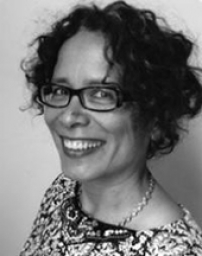 Bridget Anderson - Professor of Migration, Mobilities and Citizenship at Bristol University. She formerly held the post of Professor of Migration and Citizenship and Research Director at COMPAS in Oxford. She has a DPhil in Sociology and previous training in Philosophy and Modern Languages. She has explored the tension between labour market flexibilities and citizenship rights, and pioneered an understanding of the functions of immigration in key labour market sectors. She is the author of Us and Them? The Dangerous Politics of Immigration Controls (Oxford University Press, 2013) and Doing the Dirty Work? The Global Politics of Domestic Labour (Zed Books, 2000). She coedited Who Needs Migrant Workers? Labour Shortages, Immigration and Public Policy with Martin Ruhs (Oxford University Press, 2010 and 2012), The Social, Political and Historical Contours of Deportation with Matthew Gibney and Emanuela Paoletti (Springer, 2013), and Migration and Care Labour: Theory, Policy and Politics with Isabel Shutes (Palgrave Macmillan, 2014). Bridget Anderson has worked closely with migrants’ organisations, trades unions and legal practitioners at local, national and international level.
Bridget Anderson - Professor of Migration, Mobilities and Citizenship at Bristol University. She formerly held the post of Professor of Migration and Citizenship and Research Director at COMPAS in Oxford. She has a DPhil in Sociology and previous training in Philosophy and Modern Languages. She has explored the tension between labour market flexibilities and citizenship rights, and pioneered an understanding of the functions of immigration in key labour market sectors. She is the author of Us and Them? The Dangerous Politics of Immigration Controls (Oxford University Press, 2013) and Doing the Dirty Work? The Global Politics of Domestic Labour (Zed Books, 2000). She coedited Who Needs Migrant Workers? Labour Shortages, Immigration and Public Policy with Martin Ruhs (Oxford University Press, 2010 and 2012), The Social, Political and Historical Contours of Deportation with Matthew Gibney and Emanuela Paoletti (Springer, 2013), and Migration and Care Labour: Theory, Policy and Politics with Isabel Shutes (Palgrave Macmillan, 2014). Bridget Anderson has worked closely with migrants’ organisations, trades unions and legal practitioners at local, national and international level.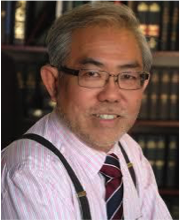 Wah-Piow Tan - A Balliol educated human rights solicitor in London representing Chinese migrants in the UK since 180s. A former political prisoner and exile from Singapore, Wah-Piow is well known since his youth as a student leader, activist, writer and public speaker advocating democratic reforms in Singapore. Most recently, in August 2018, he enjoyed unprecedented extensive media coverage following his 80 minutes discussion with the new Malaysian Prime Minister on the subject of expanding the democratic space in Southeast Asia. In 1980, Wah-Piow attended the Permanent People’s Tribunal (PPT) hearing on The Philippines in Antwerp as an observer.
Wah-Piow Tan - A Balliol educated human rights solicitor in London representing Chinese migrants in the UK since 180s. A former political prisoner and exile from Singapore, Wah-Piow is well known since his youth as a student leader, activist, writer and public speaker advocating democratic reforms in Singapore. Most recently, in August 2018, he enjoyed unprecedented extensive media coverage following his 80 minutes discussion with the new Malaysian Prime Minister on the subject of expanding the democratic space in Southeast Asia. In 1980, Wah-Piow attended the Permanent People’s Tribunal (PPT) hearing on The Philippines in Antwerp as an observer. Maureen Byrne is a Councillor. She is a retired full time Equality Officer in Unite the Union. She has been on the Employment Tribunal panel for 30 years. Currently she is Employment Law adviser for the Stansted Airport Branch. Maureen is chairperson for the Bury St Edmund’s Women’s Aid Refuge and Local Association for Mental and Physical Handicapped Charity, a group supporting young people with special needs. She is the Town Council Chairperson of the Personnel Committee.
Maureen Byrne is a Councillor. She is a retired full time Equality Officer in Unite the Union. She has been on the Employment Tribunal panel for 30 years. Currently she is Employment Law adviser for the Stansted Airport Branch. Maureen is chairperson for the Bury St Edmund’s Women’s Aid Refuge and Local Association for Mental and Physical Handicapped Charity, a group supporting young people with special needs. She is the Town Council Chairperson of the Personnel Committee.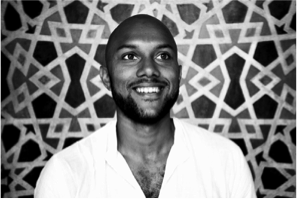 Dr Eddie Bruce Jones AB (Harvard); MA (Humboldt-Universität zu Berlin); JD (Columbia); LLM in Public International Law (KCL is currently acting dean and Lecturer in Law at
Dr Eddie Bruce Jones AB (Harvard); MA (Humboldt-Universität zu Berlin); JD (Columbia); LLM in Public International Law (KCL is currently acting dean and Lecturer in Law at  Leah Bassel - is a member of Haringey Welcome, a campaign group working for fairness, dignity and respect for migrants and refugees in the London borough of Haringey. Leah researches the political sociology of migration, intersectionality and citizenship as Professor of Sociology at the University of Roehampton. Her books include Refugee Women: Beyond Gender versus Culture (Routledge, 2012), The Politics of Listening: Possibilities and Challenges for Democratic Life (Palgrave, 2017), and Minority Women and Austerity: Survival and Resistance in France and Britain co-authored with Akwugo Emejulu (Policy Press 2017). She is currently co-Principal Investigator, with Akwugo Emejulu, of the Open Society-funded project Women of Colour Resist and has also led projects funded by the Economic and Social Research Council and the British Academy. Before pursuing an academic career, Leah was an emergency outreach worker in Paris where she provided humanitarian assistance to asylum seekers and created a circus camp project for refugee youth. She holds a DPhil from the Refugee Studies Centre/Nuffield College, University of Oxford and a BA and MA from McGill University, Canada.
Leah Bassel - is a member of Haringey Welcome, a campaign group working for fairness, dignity and respect for migrants and refugees in the London borough of Haringey. Leah researches the political sociology of migration, intersectionality and citizenship as Professor of Sociology at the University of Roehampton. Her books include Refugee Women: Beyond Gender versus Culture (Routledge, 2012), The Politics of Listening: Possibilities and Challenges for Democratic Life (Palgrave, 2017), and Minority Women and Austerity: Survival and Resistance in France and Britain co-authored with Akwugo Emejulu (Policy Press 2017). She is currently co-Principal Investigator, with Akwugo Emejulu, of the Open Society-funded project Women of Colour Resist and has also led projects funded by the Economic and Social Research Council and the British Academy. Before pursuing an academic career, Leah was an emergency outreach worker in Paris where she provided humanitarian assistance to asylum seekers and created a circus camp project for refugee youth. She holds a DPhil from the Refugee Studies Centre/Nuffield College, University of Oxford and a BA and MA from McGill University, Canada. 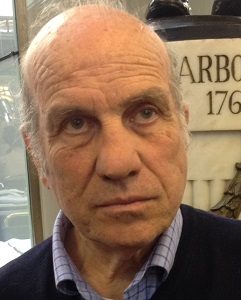 Enrico Pugliese - is Professor of sociology of work, (Emeritus) at Sapienza- University of Rome, faculty member of the Graduate school in applied sociology, University of Rome La Sapienza. He is also research associate at Irpps (Istituto di ricerche sulla popolazione e le politiche sociali), National research council, Rome. He has been Professor of Sociology of work at the University of Napoles "Federico II" where he served as chairman of the department of sociology and then as dean of the faculty of sociology. He has been visiting professor in several European and American Universities. He has been also meember of the National commission of inquiry on work at the Consiglio nazionale dell’economia e del lavoro, chairman of the Commission for drafting the immigration law of the Regione Campania. He has also been member of the advisory Commission of the City Mayor of Napoli for immigration policy. His main research interests include: international migration, Italian migration in Europe, third world immigration in Italy, migration policies, labour market with special reference to precarious employment and unemployment. His recent publications on migration include: Quelli che se ne vanno (Those who leave), Il mulino 2018, and International Migrations and the Mediterranean in Andreotti, Benassi, Kazepov (eds) Western Capitalism in transition, Manchester University Press 2018.
Enrico Pugliese - is Professor of sociology of work, (Emeritus) at Sapienza- University of Rome, faculty member of the Graduate school in applied sociology, University of Rome La Sapienza. He is also research associate at Irpps (Istituto di ricerche sulla popolazione e le politiche sociali), National research council, Rome. He has been Professor of Sociology of work at the University of Napoles "Federico II" where he served as chairman of the department of sociology and then as dean of the faculty of sociology. He has been visiting professor in several European and American Universities. He has been also meember of the National commission of inquiry on work at the Consiglio nazionale dell’economia e del lavoro, chairman of the Commission for drafting the immigration law of the Regione Campania. He has also been member of the advisory Commission of the City Mayor of Napoli for immigration policy. His main research interests include: international migration, Italian migration in Europe, third world immigration in Italy, migration policies, labour market with special reference to precarious employment and unemployment. His recent publications on migration include: Quelli che se ne vanno (Those who leave), Il mulino 2018, and International Migrations and the Mediterranean in Andreotti, Benassi, Kazepov (eds) Western Capitalism in transition, Manchester University Press 2018.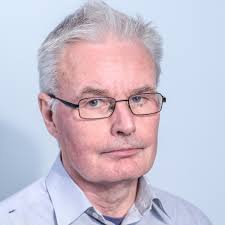
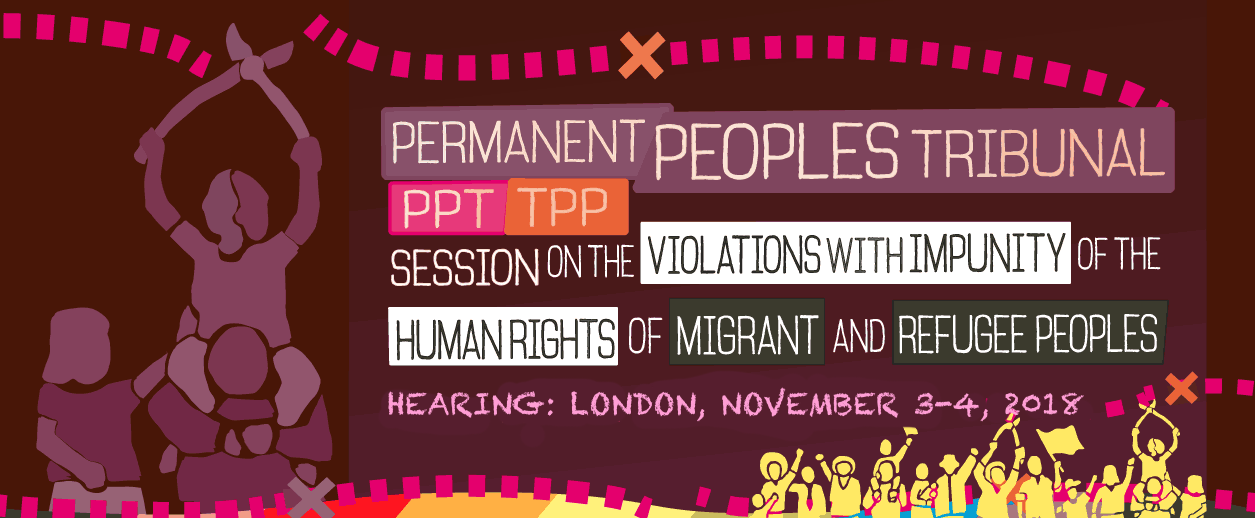



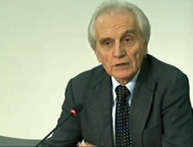
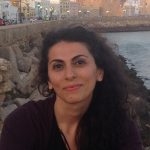


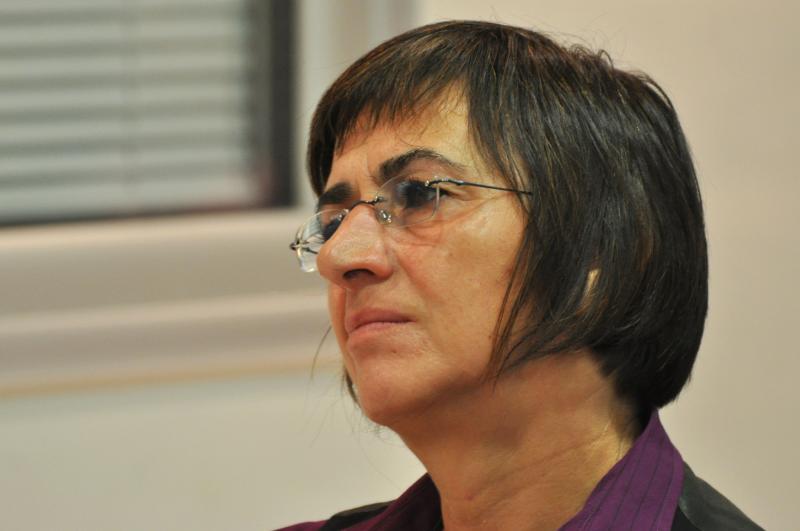
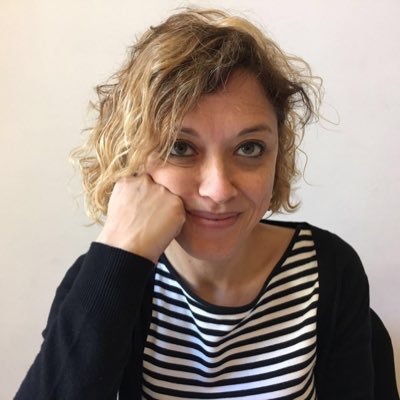
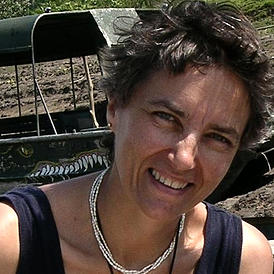

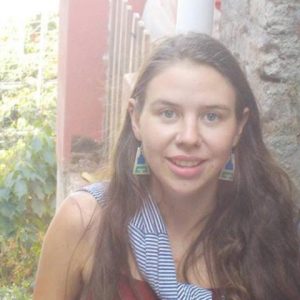 This November the hostile environment will be out on trial in front of a panel of expert jurors.
This November the hostile environment will be out on trial in front of a panel of expert jurors. 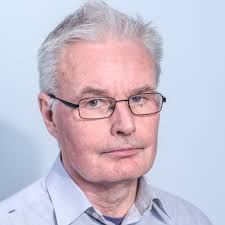
 Overworked, underpaid and undervalued, London hotel workers are speaking out.
Overworked, underpaid and undervalued, London hotel workers are speaking out. 